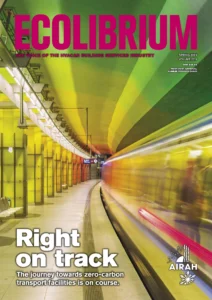The heat is on

An El Niño weather event has been declared, amid realisation that 2023 appears likely to be the hottest year on record.
Australia’s Bureau of Meteorology has formally declared an El Niño weather event, meaning one is under way for the first time in eight years. El Niño is a major climate driver linked to hot, dry weather, which can increase the risk of bushfires in Australia.
The major climate event impacts the weather patterns of 60 per cent of the globe, with Australia particularly vulnerable to its impacts.
Australian Federal Emergency Services Minister Murray Watt says El Niño increases the risk of hot weather that has not been experienced since the Black Summer of 2019–20.
“And while there’s been a lot of focus on bushfires, and understandably so, one of the other risks that we face this year is heatwaves, which of course are the silent killer of Australians,” he says.
“Actually, we lose more people to heatwaves every year than we do from other forms of natural disasters.”
Summer intensity
According to data from the European Union’s Copernicus Climate Change Service (C3S), June to August was the planet’s warmest such period since records began in 1940.
The global average temperature this northern summer was 16.77°C, which is 0.66°C above the 1990 to 2020 average – beating the previous record, set in August 2019, by nearly 0.3°C.
The planet experienced its hottest June on record, followed by the hottest July – both breaking previous records by large margins. July was also the hottest month on record since official records began in 1880.
August was also the warmest such month on record, according to Copernicus data. The global average temperature for the month was 16.82°C – 0.31 degrees warmer than the previous record set in 2016.
“The dog days of summer are not just barking, they are biting,” said António Guterres, secretary-general of the United Nations. “Scientists have long warned what our fossil fuel addiction will unleash. Our climate is imploding faster than we can cope, with extreme weather events hitting every corner of the planet.”
Both July and August are estimated to have been 1.5°C warmer than pre-industrial levels, according to C3S, a key threshold scientists have long warned the world must stay under to prevent the most catastrophic impacts of climate change.
“Scientists have long warned what our fossil fuel addiction will unleash. Our climate is imploding faster than we can cope”
Remember September
C3S confirmed that in September, average surface air temperatures globally reached 16.38°C. The figure is a significant 0.5°C higher than the previous warmest ever September in 2020, and is the biggest jump in temperature seen since at least 1940.
Scientists say next year is likely to be even hotter, given the arrival of El Niño.
“This El Niño is developing in a warmer ocean than any previous El Niño,” says C3S director Samantha Burgess. “So, we are watching with interest how this event develops in terms of strength and impact.”
State of the climate
The US National Oceanic and Atmospheric Administration has released its State of the Climate report for 2022 – an annual health check-up for the planet.
It found record ocean heat and global sea levels last year, with carbon pollution reaching the highest levels in at least 800,000 years.
The Pontiff pontificates
Pope Francis has released a follow-up to his 2015 encyclical Laudato Si, urging the world to act on climate change.
“With the passage of time, I have realised that our responses have not been adequate, while the world in which we live is collapsing and may be nearing the breaking point,” Francis wrote in the new document, titled Laudate Deum, or Praise God.
Francis suggests that having blind faith in technical solutions to solve the climate crisis is “a form of homicidal pragmatism, like pushing a snowball down a hill.
“Once and for all,” he writes, “Let us put an end to the irresponsible derision that would present this issue as something purely ecological, ‘green,’ romantic, frequently subject to ridicule by economic interests.”

This article appears in Ecolibrium’s Spring 2023 edition
View the archive of previous editions
Latest edition
See everything from the latest edition of Ecolibrium, AIRAH’s official journal.




